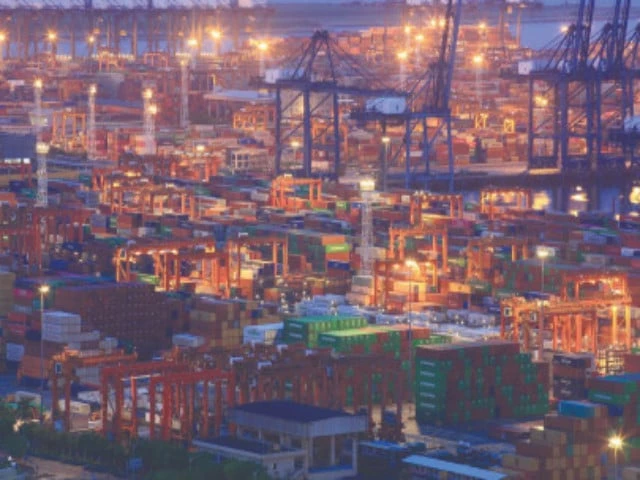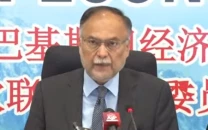Shocks in trade policy
Pakistan, like others, finds itself directly in crosshairs of shifting global trade winds

It appears that Mercantilism shadow looms large over the very logic underpinning the recent American trade policy, a zero-sum worldview that equates national strength with trade surpluses.
The "Mercantilist System", as explained by Adam Smith, is a form of economic nationalism that strives for the growth of wealth and power through trade surpluses. It became the dominant economic thought in Western European nations during the 16th to 18th centuries, marking an era of policies that protected the interests of domestic monopolistic companies such as the British "East India Company" and used them as levers of political influence and dependency against the colonies.
Adam Smith argued that instead of this zero-sum game, countries should adopt an open trade system based on comparative advantage. This idea became the building block of global trade system in centuries following Smith. The United States and other Western nations became major beneficiaries, where they were able to export value-added products, while importing raw materials and semi-finished goods.
Free trade also benefited many rising powers from Asia, starting with Japan, and then Southeast Asia, and now China. China is a major global economic power now, and champions free trade. This shift in wealth was possible only through an open trade system. Productive capacity alone can't bring prosperity without exchange.
The United States is possibly driving the world market into an era of protectionism. Prospects of a new trade war are high. Trade war, through reciprocal tariffs, will not remain confined to economics. The last time we saw similar tariff hikes ultimately led to the Great Depression and the World War 2 followed.
The 90-day truce with China is set to expire on August 12 and it will set the stage for a new round of trade war and negotiations that will determine where global power shifts.
Luckily, today's world is not completely dependent on the US economy. Today's global order is increasingly multipolar, and a trade tug of war between giants threatens to disrupt free trade, spark inflationary pressures, and unravel decades-old, sophisticated supply chains. The World Trade Organisation (WTO) estimates a 7% reduction in global trade, with smaller countries bearing the brunt of the fallout.
Pakistan, like many developing nations, finds itself directly in the crosshairs of these shifting trade winds. The United States serves as the largest export market for Pakistan, outside the European Union, accounting for 19% of total exports, out of which textile contributes almost 65%.
The government's recent negotiations with the US administration have been presented as a success. It is claimed that Islamabad secured a better tariff rate than competitors at 19%, bringing the cumulative rate to 35%, when 16% MFN tariff is added.
India and Bangladesh were hit with 25% and 20% rates, respectively, with an additional 25% punitive levy on India due to its oil imports from Russia, highlighting Trump's use of trade to influence other nations' foreign policies.
The concession for Pakistan may not bring significant gains because of the prevalent cost disadvantages faced by the country's industry. As demand in the US market will go down after a significant increase in prices for US households, this will create pressure on Pakistan's exporters to find substitute markets like the EU. Since the EU is already putting pressure on Pakistan for compliance with GSP Plus-related conventions, this means the options for Islamabad to diversify exports are limited.
It is a good sign that the US has shown willingness to invest in Pakistan in several fields such as minerals. Vast and unexplored mineral reserves remain to be exploited and developed. International companies can not only bring capital, but also knowledge which will have spillover effect on many sectors of the economy. FDI inflows can also help in compensating for the loss of export income. Trade and investment go hand in hand.
We are entering a world, where trade policy, and in particular tariffs have been weaponised. Trade policy is no longer a domain of economics; but it has become a tool for geopolitical interests. Pakistan is doing the right things at the moment in navigating through this complex and uncertain territory. It has recently announced major tariff reforms, which were due for the last 20 years. Its resolve to lower tariff barriers is about to face a very hard test by a radically changing global trade policy.
The writers are affiliated with PRIME Institute, an independent economic policy think tank






















COMMENTS
Comments are moderated and generally will be posted if they are on-topic and not abusive.
For more information, please see our Comments FAQ